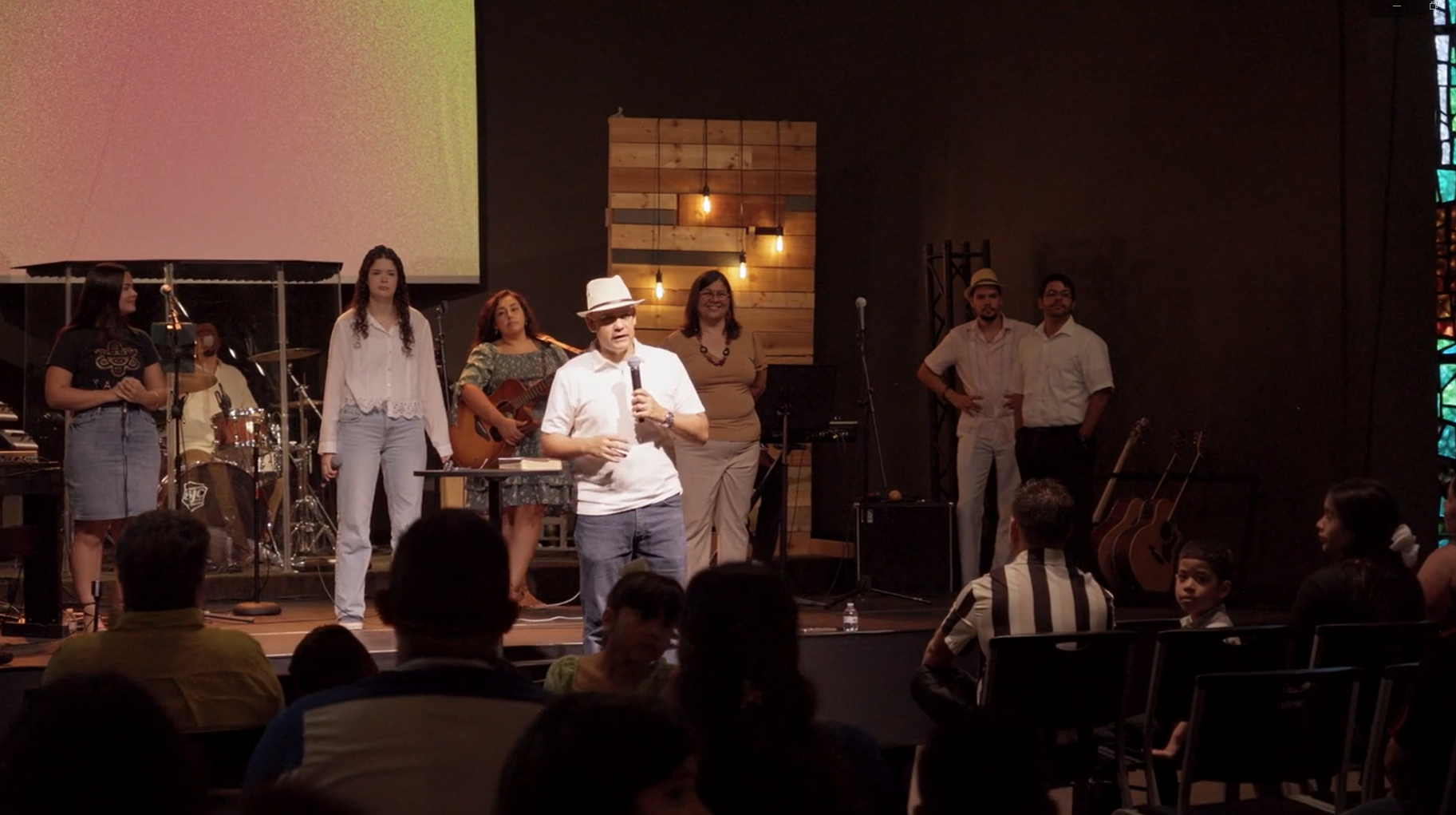We Are One: One Church, One City
We live in a context where lots of people want to talk about unity. But not everything that appears to be unity comes from the heart of God. In John 17:20-23, Jesus prays for his disciples and by extension for us, saying:
20 “My prayer is not for them alone. I pray also for those who will believe in me through their message, 21 that all of them may be one, Father, just as you are in me and I am in you. May they also be in us so that the world may believe that you have sent me. 22 I have given them the glory that you gave me, that they may be one as we are one— 23 I in them and you in me—so that they may be brought to complete unity. Then the world will know that you sent me and have loved them even as you have loved me. (NIV)
Jesus prays one of the most profound and revealing prayers we find in Scripture: He prays for the unity of all who would believe in Him. He doesn't pray for uniformity, strategies, or structures. He prays for unity: a unity that reflects the divine intimacy between the Father and the Son, a unity so palpable that the world cannot ignore it.
We may have different styles, different structures, but when our core values—the gospel, humility, grace, mission—are aligned, the ground is fertile for walking together in joy and freedom.
What is Christian Unity?
Jesus prays for something supernatural: that we, His followers, live in such communion with one another that the world can see in us the reality of God's love. This is true Kingdom apologetics. Personally, this passage profoundly challenges me to evaluate not only how I speak of unity, but how I live it. I have learned, from much failure to trust in my ability, that when we try to maintain unity without surrendering to Christ, what we experience is fragile, superficial, and often self-centered.
Many attempts at unity, however well-intentioned, do not reflect the kind of communion Jesus prayed for in John 17:
Sometimes we unite solely for notoriety, seeking to be seen, to gain influence, or visibility, rather than cultivating true communion in the Spirit.
Other times, the motive is purely pragmatic: “It works,” we say, without pausing to discern whether it reflects the heart of the gospel.
In other ways, activism might unite us in action, but if that action isn't born from a deep spiritual root, we end up exhausted and disconnected. Even worse, one-sided agendas often emerge, where someone invites collaboration but is unwilling to listen, learn, and compromise. In those cases, the invitation sounds more like “join me” than “let's walk together.”
When I see these dynamics, I can't help but wonder: Is this what Jesus had in mind when he asked the Father to be one? Clearly not. He was speaking of something much deeper, more relational, more glorious. Real Christian unity is born from Christ’s own relationship with the Father, and that unity becomes a living testimony before the world.
How Do We Find Unity Across Our Differences?
I participate in multiple spaces where we experience and live this kind of DIVERSE UNITY (across denominations, generations, cultures). In these spaces, I have learned that true unity is indeed possible and very powerful when it is built on solid foundations in this journey together. One of these foundations is having a shared purpose. When different churches and leaders discover that they are responding to the same call to make the Kingdom visible in their city, unity no longer needs to be forced; it becomes natural, even inevitable.
Another foundation for unity is sharing the same spiritual DNA. We may have different styles, different structures, but when our core values—the gospel, humility, grace, and mission—are aligned, the ground is fertile for walking together in joy and freedom.
And, what is perhaps the most profound in our unity is relationships. Unity is strengthened not only by ministerial agreements, but also by friendship, trust, and transparency. As C.S. Lewis says, "Friends discover each other because they love the same truth."
This deep relationship is forged when we share the table, the tears, the failures, and the victories. Because unity is not just strategy; it is communion. And communion is formed when we see each other as brothers and sisters, not as functional allies.
Personally, I am convinced that the failure to achieve the unity Jesus spoke of is the result of not understanding that what truly unites us is the gospel. Our unity isn’t built around a strategy, an event, or a denomination. It is the person of Jesus; He is the center. He is the good news (gospel) we all need.
We are united by the centrality of the gospel. It is not the methodology that connects us, but the person of Jesus. He is our starting point and our meeting point. The good news that God has loved us perfectly in Christ is the beating heart behind all true collaboration between churches.
One Body, One Church
I also believe—and I have said this many times—that our city does not have thousands of churches. Rather, we are one church with many beautiful expressions. One church, one Body, united by the deep conviction that we are part of that one church of Christ in the city.
We are a church that has been sent with a single mission: to bring the gospel to every corner, to every community, to every broken life in need of hope. When we understand that, we begin to move differently. We no longer compete, we celebrate. We no longer distrust each other, we bless each other.
The reality is that we are not looking for an event. We are not yearning for another initiative. What we need—what we continue to cry out for—is a movement, a gospel movement where:
The Latino church in all our cities reflects a visible and tangible unity.
We see a multiplication of churches, faithful to the gospel and committed to the transformation of their communities.
Our Latino congregations become sending centers, which multiply by sending planters, replanters, and missionaries from our congregations.
Each of us develops a true commitment to mutual prayer and fraternal support, beyond just one focused month or calendar event.
Because when the gospel of Jesus is the center, unity is not only possible, it is inevitable.
Victor Marte is a UBA Church Consultant primarily serving Hipanic congregations and those wishing to reach the Spanish-speaking community. Pastor Marte has served in leadership in the city for years and leads UBA’s Lideres Transformadores and Church Planting Cohort.
We’ll send one succinct weekly email
with the best news, events, and info
for churches in the Houston area.
Photo by Dave Hoefler on Unsplash











How can we plant churches that enrich the community, love the city, and contribute to urban shalom?